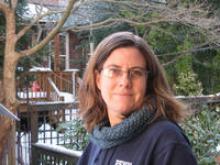Josh and Ray begin the show by discussing equality in relation to other animals and entities in the world. Josh contrasts Margaret Cavendish with René Descartes who held that the soul is a completely different kind of thing from the body; Ray explained that for Cavendish there was just one kind of thing, matter. Then the hosts pivot to the inequality between men and women present in Cavendish’s writings, both in philosophy and literature, with Ray reminding listeners that Cavendish had a lot to tell her male contemporaries about how to be nicer to women.
Karen Detlefsen, Professor of Philosophy at the University of Pennsylvania, and co-editor of The Routledge Handbook of Women in Early Modern European Philosophy, joins the Show. She shares her perspective on questions about women's freedom during her time, and her choice of experimental thinking and genre to face this challenge. Karen also articulates an interpretation of Cavendish’s views on a kind of panpsychism (that all matter is rational, sensitive and inanimate), and offers as metaphor the interlocking process of how a building is built. Josh and Ray probe Karen more on this, including a question about Atomism (the world is just atoms) and Cavendish’s own Plenism (the world is just a chunk of matter and contains no vacuum).
After a short break, the hosts and their guest continue the discussion about how human beings relate to the nonhuman world according to Cavendish. Karen points to a poem where the Duchess extols the virtues of vegetarianism, suggesting a kind of equity between humans and the rest of nature; Ray wonders if there is some possible eco-feminist inspiration here. Josh asks Karen about Cavendish’s Monarchical views, and she answers that some interpretations accept a public aspect, but find inclinations towards Republicanism in her work as well, and even if she was indeed personally committed to the Royalist cause.
Roving Philosophical Report (Seek to 5:19) → Holly McDede talks to Danielle Dutton who wrote a novel about Cavendish called Margaret the First: A Novel, and which draws from Cavendish’s real life.
Sixty-Second Philosopher (Seek to 46:36) → Ian Shoales notices the extraordinaire life and times of Margaret Cavendish, the Duchess of Newcastle, including joining the Queen in exile, where she met and married widower William Cavendish the first Duke of Newcastle, and wrote thirteen books—poetry, plays, philosophy, natural science—and visited the Royal Society of London.




Comments (3)
kyriemilan
Tuesday, April 15, 2025 -- 8:16 PM
The conversation shifts toThe conversation shifts to the inequality between men and women as portrayed in Cavendish's work fnaf, both in philosophy and literature. Ray highlights Cavendish's insights, emphasizing that she had much to convey to her male contemporaries about treating women with kindness and respect.
Bertran
Thursday, May 1, 2025 -- 4:07 AM
Totally agree! Cavendish wasTotally agree! Cavendish was way ahead of her time. The way she pushed back on male philosophers and used her writing to call out gender inequality is honestly inspiring. She wasn’t just smart—she was bold too.
Bertran
Thursday, May 1, 2025 -- 4:17 AM
For real , it’s wild howFor real , it’s wild how Cavendish believed even rocks had some kind of reason—like, she really flipped the script on how people thought back then. And using poetry and fiction to sneak in big ideas? Genius move.